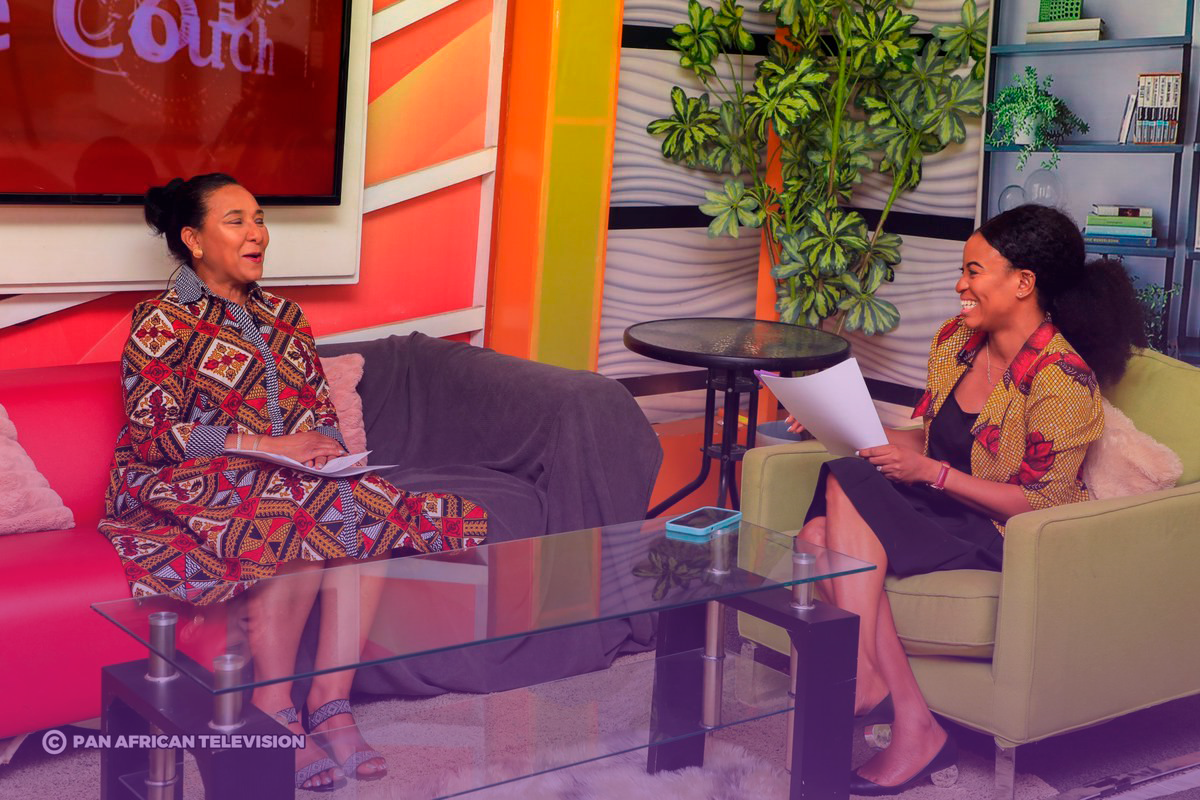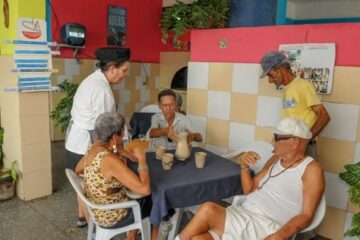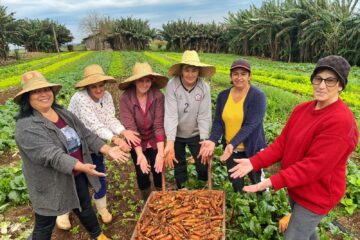The word “feminism” in Ghana, and I dare say in most parts of Africa, has taken on some negative connotation. A lot of people refuse to identify as feminists, and that’s our first challenge in communication.
You cannot properly communicate an idea that people don’t relate to. That’s why our strategy is to situate feminism in a relevant political context. Situate our struggle for the ideal of a world with an equitable distribution of wealth, with equal rights, where we can live our best live. We have to portray it as something that benefits both genders. This is putted in a way that our struggle is based in the making of an equal world by unifying struggles. For that, we put the weakest at the center of all of our activities. It’s just an appreciation of the gender struggle as perhaps the central struggle of all we do. Therefore, empowering women becomes an issue of starting from the bottom.
All of this is very layered. We’re looking at things like reproductive rights, the commodification of our nature, gender-based violence, the privatization of health and education. But how do we communicate in a way that can make change? I look at this as two things: sensitization and influence. You want to sensitize, and perhaps I take it for granted the appreciation of all of the very cultural and traditional setups. The fact that most Africans are deep in culture and traditions.
So how do we sensitize with an aim to influence for that change to be possible? Perception is everything in all of this. At Pan African TV, we have decided that programming and TV content is our way to go. We’re deliberating and consciously creating content that addresses this big “how.”
The second strategy are events. Not only big or glamorous events, but finding ways to enter the informal spaces. The categorization of women is in there, we have our our students, our markets, maybe our co-operatives, all of that. We have to enter this informal spaces, hear them out, and take on their perspectives from their points of view. Some of our content involves actually going to these places, so we can have direct contact. The biggest end point of this kind of strategy would be action. Inspire people to do something, take an initiative, to move, to speak. Showing up for events would be one of those things, because people come from their places to give their testimonies, and this cause change.
About the programming, we have market stories: we enter these markets, speak with these women, understand some of their challenges and the propositions they have to solve them, and how they hope that the powers that be will solve it. Dialog is key. And representation is important for us because we need to see women having a seat at these tables and being involved. But representation doesn’t solve all or most of our issues. For us, representation would be the icing on the cake—that cake being a world where all women, and by extension all humans, live their best potentials and to their fullest. Representation becomes then only a side, a more progressive way to do things. Our activities and strategy should be toward the whole. We are looking for a world where all women have access to our means of production, of distribution, and with real and genuine equity. Then representation becomes an added bonus, because is a way for us to see our women.
The strategy is a real appreciation of cultural context and perception. An identification of feminismin a context of your space. Women here would say that they are progressive and want advancements, but that they are not feminists. So first we must have an appreciation of that, and then we need to find a way to make feminism more relevant. Communication works in a way to position feminism in a way that is relevant to all of us, with the definition of what feminism is, and how it is relevant to our struggles, as people of the world, and to our ultimate struggle for an equitable world for everybody.
And how would we do that? Here, looking at feminism at the center of it all and saying that we’re starting from the bottom, it then becomes the main way, it makes the struggle more relevant. We take feminism to all spaces. To TV content and programming, but also going into unofficial spaces to listen and channel activities of communication in a way that is relevant to these spaces that we engage, looking at the specific issues that we face as women. From the perspective of TV, movies, music videos, we’re trying to make it a more progressive representation of how women are positioned and portrayed. That’s our strategy, a more holistic approach to the way we see mainstream virtues, like strength, for example. We address strength as not only in terms of the physical, but also the emotional. And by that I mean that we could look at values like care, nurturing, as central to who we are, and this positions the woman and the strength that she has positively. What we have, what we are, and what we bring to the table is not aside. The care, the maintenance that we do are central to our struggles. And we portray that as the valuable things they are.
The main thing comes with us identifying as feminists, and if within your cultural setup there is an ill feeling around the name, how do we move around it and get work done. The answer for us is to stay on relevance, because once you start to explain what you’re about, it goes to the heart of our commonness. People realize that they have similar stories, struggles and challenges. At the community, once we share our commonness and understand the oneness of our stories and struggles, it goes beyond the name and how we choose to call it. Our struggles are the same, we are all looking for a world where we’re all equal.
Within the struggle are the sub-struggles, so we start from the weakest. And because women are at the bottom of the bottom, that means an understanding and appreciation of the relevance of what we do as feminists, and how relevant is to know who and what we are to, then, form our common agenda. Then, perhaps more women will identify with what we do, identify as feminists.
That’s why most of our programs and events are centered at the community. We go to places and listen to women, voices that are normally the marginalized voice within the community. We hear these voices and perspectives because ultimately that is what will have us all go towards the change that we seek. And the destination is an equitable world.
______________________
Ama Pratt is the executive director at the OBAASIMA Foundation and director general at Pan African TV. She hosts the show “The Couch With Ama Pratt,” where she talks about social issues, politics, and matters related to workers and the disenfranchised. This article is an edited version of her contributions during the webinar “Political Strategies for Grassroots Feminist Communications” held by Capire on July 5th, 2022.




